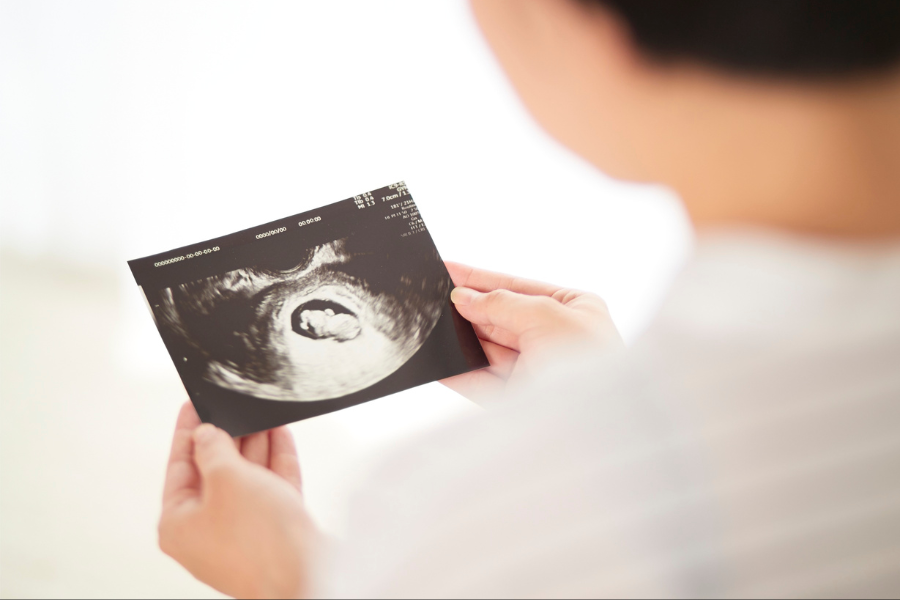Rape and incest are among the most horrific sins a person can endure. They shatter lives, inflict deep trauma, and demand justice against the perpetrator. Women who endure such evil deserve compassion, justice, and real support. No one should minimize their suffering. But when it comes to abortion, the question we face is this: does the trauma of the mother justify ending the life of her innocent child?
The Humanity of the Unborn
The first relevant question that must be answered is not philosophical but scientific: what is the unborn? On this, the science is settled. Standard embryology textbooks like The Developing Human by Keith Moore and T.V.N. Persaud state plainly:
“Human development begins at fertilization when a male gamete or sperm unites with a female gamete or oocyte to form a single cell — a zygote. This highly specialized, totipotent cell marks the beginning of each of us as a unique individual.”
From the moment of fertilization, a new human organism comes into existence. The unborn is not part of the mother’s body — the child has separate DNA, often a different sex, and develops along a self-directed path of growth. The embryo is not a potential human but a human with potential. To dismiss the unborn as “just a clump of cells” is scientifically misleading. You and I are also composed of cells, but we are living, whole human beings — integrated organisms developing along a coordinated path of growth, not mere clumps of cells. The unborn are no different; they are simply at an earlier stage of development.
The Value of the Unborn
Even if one concedes the unborn is biologically human, some argue that he or she is not yet valuable. After all, the unborn lacks self-awareness, cannot survive outside the womb, and is totally dependent on the mother. But none of these traits determine worth.
- Self-awareness? Newborns are not self-aware either, nor are the comatose or those under anesthesia. Yet they still possess value.
- Independence? Infants, the elderly, and the disabled are often radically dependent on others, but dependence does not erase dignity.
- Size or development? A teenager is bigger and more developed than a toddler, but that does not make the teenager more valuable.
Some appeal to rape and incest because they genuinely believe the suffering of a fully conscious person outweighs the worth of a smaller, unaware human being. But if we accept that premise — that awareness or development makes one human more valuable than another — we cross a dangerous line. If awareness or ability determines worth, then infants, the cognitively disabled, and the elderly become expendable. Once human value is conditional, justice collapses and the weakest lose protection. Human beings cannot be divided into those who matter more and those who matter less.
Human beings do not possess worth by virtue of what they can do or what stage they are in. They possess worth by virtue of what they are: members of the human family. Our conviction that all people are equally valuable rests on something deeper than law or consensus — it reflects the reality that every person possesses an inherent dignity that cannot be earned or lost. The Christian tradition calls this the Imago Dei — the image of God in every human being.
Any view that ties dignity to traits like awareness, size, or independence reduces human value to a sliding scale. That path leaves the weakest among us unprotected.
The Principle at Stake
This is why the hard cases of rape and incest are so important. The question is not whether the mother’s suffering matters — it does. The question is whether the child’s value depends on the way he or she was conceived. And here is the truth: the manner in which a human being comes into existence does not determine that human being’s worth.
A child conceived in violence is no less human, no less valuable, than one conceived in love. We don’t assign worth based on circumstances of birth, and we shouldn’t here either. Abortion doesn’t erase the assault — it adds another victim. The just and compassionate response is to punish the guilty, care for the mother, and protect the innocent child.
Testing the Logic
Consider the implications if we reject this principle. If killing an innocent human being is justified to relieve the suffering of another, then no infant conceived in rape would be safe. Imagine a woman who bravely carries her child to term, only to find as the baby grows that his face resembles her attacker. Could she then, in her anguish, drown her one-month-old to ease her pain? Of course not. Her suffering is real, but it does not give her license to kill an innocent child.
And what meaningful difference is there between that one-month-old outside the womb and the same child a few months earlier in the womb? None at all. Both are living members of the human family. Both share the same human nature that carries intrinsic worth.
The Just and Compassionate Response
The child conceived in rape is not the criminal; he or she is another victim. The rapist deserves punishment. The mother deserves compassion, justice, and real support. And the child deserves protection. True compassion never chooses between them. It punishes the guilty, cares for the wounded, and safeguards the innocent. This is how we respond to evil without creating new victims, and how we uphold the truth that every human life is valuable simply because it is human.
How to Talk About This
Heart of the Issue
When this objection comes up, remember what the real question is: What makes human beings valuable? Everything else flows from that.
People often raise rape and incest because they believe the suffering of a fully aware person outweighs the worth of a smaller, unaware one. It feels compassionate — they want to ease pain — but beneath that feeling lies a dangerous assumption: that some human beings count for more than others. Once that idea takes root, we lose any solid ground for equality. If awareness or circumstance determines worth, then infants, the disabled, and the elderly become less human too.
So when someone raises this objection, keep the focus on value, not emotion. Ask clarifying questions that expose what the conversation is really about. For instance:
“Would you be willing to ban abortion in every case except rape and incest?”
If they say no, then the issue isn’t truly about those rare cases — it’s about whether any human life has intrinsic worth. Gently bring the discussion back to that foundation. The goal isn’t to corner someone but to help them see what their logic assumes. A calm, compassionate tone communicates that you care about both lives — the mother’s and the child’s — and that real compassion never requires dehumanizing another person.
Questions to Ask
Good questions keep conversations grounded and reveal what someone actually believes. They invite reflection rather than argument. Use them to clarify, expose assumptions, and return to the central issue of human worth.
- “Would you be willing to ban abortion in every case except for rape and incest?”
Helps reveal whether the objection is sincere or a way to defend abortion in general.
- “Do you think it’s morally permissible to kill an innocent human being to relieve the suffering of another?”
Brings the conversation back to the core moral question — can hardship ever justify killing the innocent?
- “Do you think a child conceived in rape is less human than one conceived in love?”
Tests consistency and challenges the idea that circumstances determine worth.
- “Would it be okay for a woman to kill her one-month-old if the child resembled her attacker?”
Extends the same reasoning outside the womb to show that it fails everywhere else.
- “If awareness determines value, what about newborns who aren’t self-aware yet?”
Presses gently on the belief that consciousness, not humanity, grounds moral worth.
- “If dependence disqualifies the unborn, does that mean infants who rely completely on their parents have less value too?”
Shows that dependency doesn’t diminish dignity.
These questions help keep conversations anchored to the real issue: the equal, intrinsic worth of every human being.

Michael C. Sherrard
Michael C. Sherrard is the president of Apologetics, Inc., the author of Why You Matter and Relational Apologetics, and faculty at Summit Ministries.


2 thoughts on “Is Abortion Wrong in Cases of Rape and Incest?”
I’m a believer first, a woman second, and a psychotherapist third. Having worked extensively with women out of human trafficking and children involved in the foster care system, I believe that if the raped mother decides to terminate, which should be done as early as possible, then it’s between her and God. Nothing good comes out of a situation where a traumatized mother, who hates or resents the human being developing inside of her, feels coerced by religious guilt to keep the outcome of her rape going. The infant can sense that rejection through stress hormones. That infant…..who’s going to care for it? Churches don’t run orphanages, the vicitms often have no means to raise the child, and the foster care system is very broken- often traumatizes the child for life. That generates another victim who keeps suffering for life. If the woman does not have the capacity to bond with, and keep the life inside her and decides to terminate to spare her own ongoing trauma, it’s between her and the Lord. No one else needs to weigh in her situation. He is just to forgive her.
Thanks for the comment, and I appreciate your civil tone. First, it’s worth noting that the claim “no one will care for the child” simply isn’t true. Estimates suggest between 1 and 2 million couples in the U.S. are waiting to adopt. The foster care system does need serious reform, but acknowledging that obligation never justifies killing babies. A broken system is a call to responsibility, not a moral permission slip to eliminate the vulnerable. And there are thousands of faith-based child placement agencies working to strengthen foster care in the United States, as the U.S has moved away from orphanages in exchange for the foster care system.
Second, and most importantly, a civil society cannot kill an innocent human being to spare trauma or hardship. That is a barbaric belief that takes us back to a time in history where we believed that human value is conditional. Once we say that an innocent person’s right to life depends on circumstances, emotional capacity, or projected quality of care, we have abandoned the principle of equal human dignity. History shows us exactly where that logic leads.
And while it is true that God is merciful and forgiving, forgiveness presupposes that something wrong has occurred. Knowing that God will forgive does not give us license to sin. Obedience is costly, and we ought not mock the blood of Jesus. Our Savior did not die on the cross to ease our consciences about the deaths of innocent babies killed in the womb. No, His death is an example for us all: we do not sacrifice others for ourselves; we lay down our lives for them.